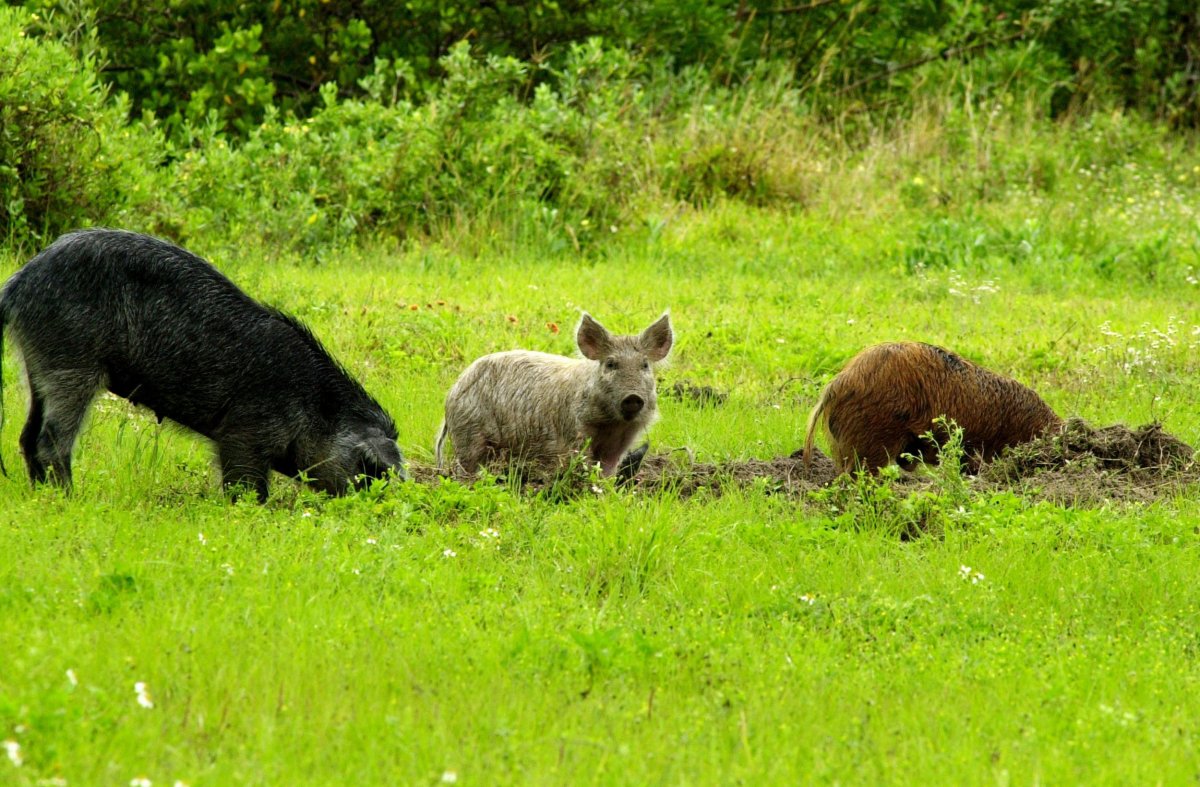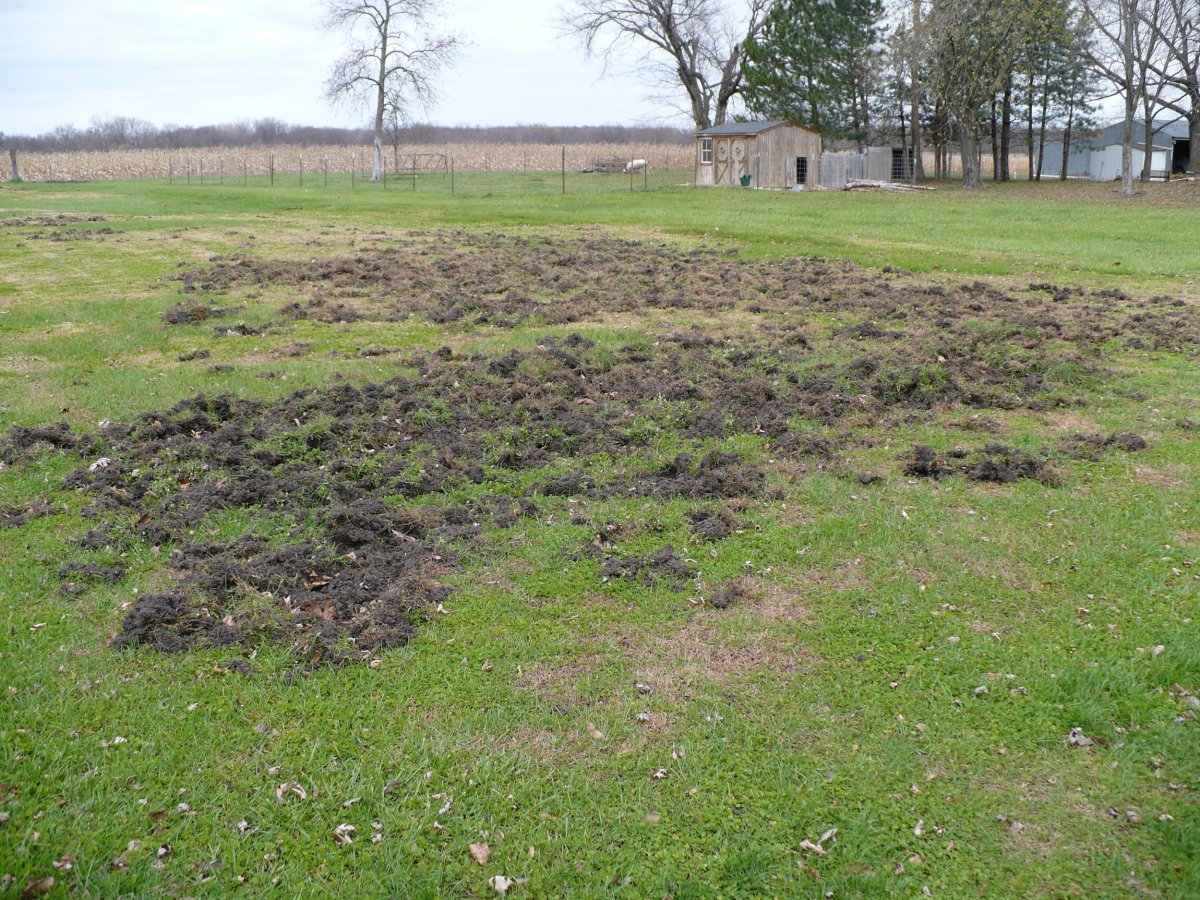Feral hogs from Canada are approaching the Montana border, wildlife experts warn, threatening both farmland and the environment.
Groups of the invasive swine have been spotted recently in both Saskatchewan and Alberta near the Montana-Canada border. One sighting earlier this summer saw eight mature pigs directly above Lincoln County, a heavily wooded area that butts up against British Columbia.

Feral hogs, also known as razorbacks, are descendants of escaped or released farm pigs, first brought to the U.S. in 1500. They can cause major damage to crops, pastures, natural resources and even property. The pigs root around for their food, usually in farmland and forests, leaving the terrain damaged and nearly unrecognizable. "They can decimate the range land by tearing up everything," Tahnee Szymanski, a veterinarian with the Montana Department of Livestock, told The Daily Inter Lake.
Their eating habits have also been known to damage cultural and historical landmarks, national parks, cemeteries and sacred tribal sites.
"Multiple people say that if we were to design an invasive species that would do the most widespread damage, feral swine aren't too far off from being the perfect specimen," National Feral Swine Program manager Dale Nolte told The Daily Inter Lake. "It would be a disaster."
What's more the pigs are reproducing at a fast pace—with more than 6 million found in 32 states. Each year the cost of damages and efforts to control the beasts are estimated at $1.5 billion, according to the USDA.

Sows birth around three litters every two years, each containing more than a dozen piglets, according to Department of Agriculture wildlife services director John Steuber. When grown, mature hogs can weigh up to 250 pounds, though some have been recorded to tip the scale at 400 pounds.
A University of Saskatchewan study from May showed the hogs growth across Canada over the last three decades has grown at a rate of about 9 percent a year.
"Wild pigs are ecological train wrecks," says lead author Ruth Aschim. "They are prolific breeders making them an extremely successful invasive species. Wild pigs can cause soil erosion, degrade water quality, destroy crops, and prey on small mammals, amphibians and birds."
Diseases from feral hogs are also a threat to humans and other domesticated animals: They carry hand-foot-and-mouth disease and African swine fever, which can devastate livestock pig populations.
"On the international scale, there have been very significant outbreaks of African swine fever," Szymanski told The Daily Inter Lake. "Currently it is believed the disease doesn't exist in Canada and we certainly hope to keep it that way. Our swine industry in Montana relies heavily on making sure diseases like this don't come here."
After a group of hogs was seen wandering near Sheridan County in 2018, the Montana Invasive Species Council launched a "Squeal on Pigs" campaign to raise awareness of the brazen boars.
But "it's kind of inevitable" the animals will make their way into Montana, council coordinator Stephanie Hester told the Billings Gazette. "There's no fences or wall to keep them out. We are at risk."
Uncommon Knowledge
Newsweek is committed to challenging conventional wisdom and finding connections in the search for common ground.
Newsweek is committed to challenging conventional wisdom and finding connections in the search for common ground.
About the writer
To read how Newsweek uses AI as a newsroom tool, Click here.








